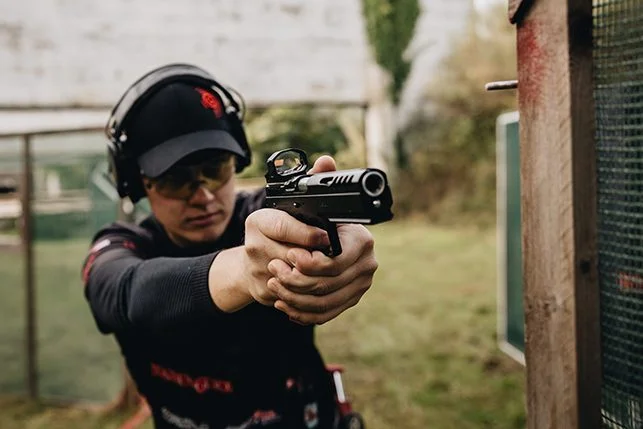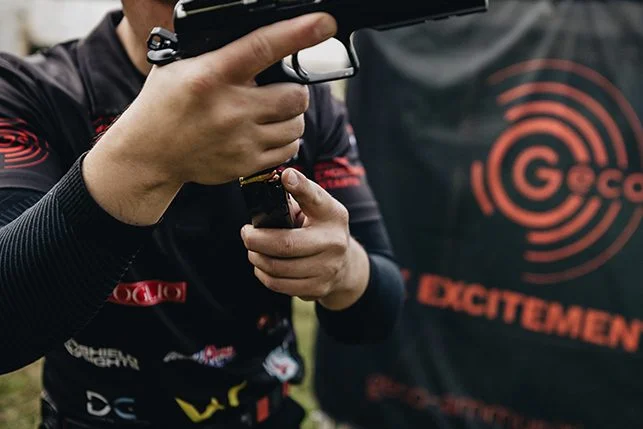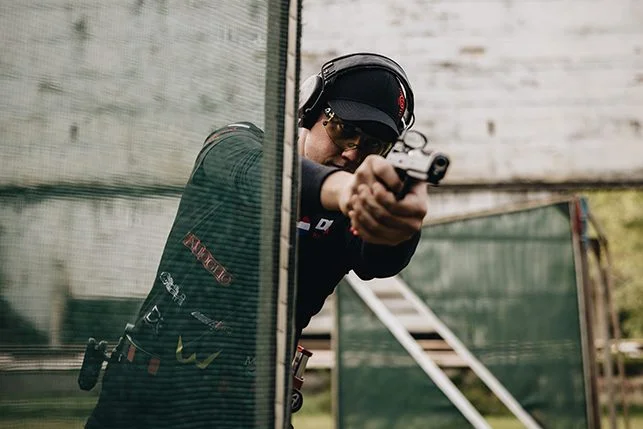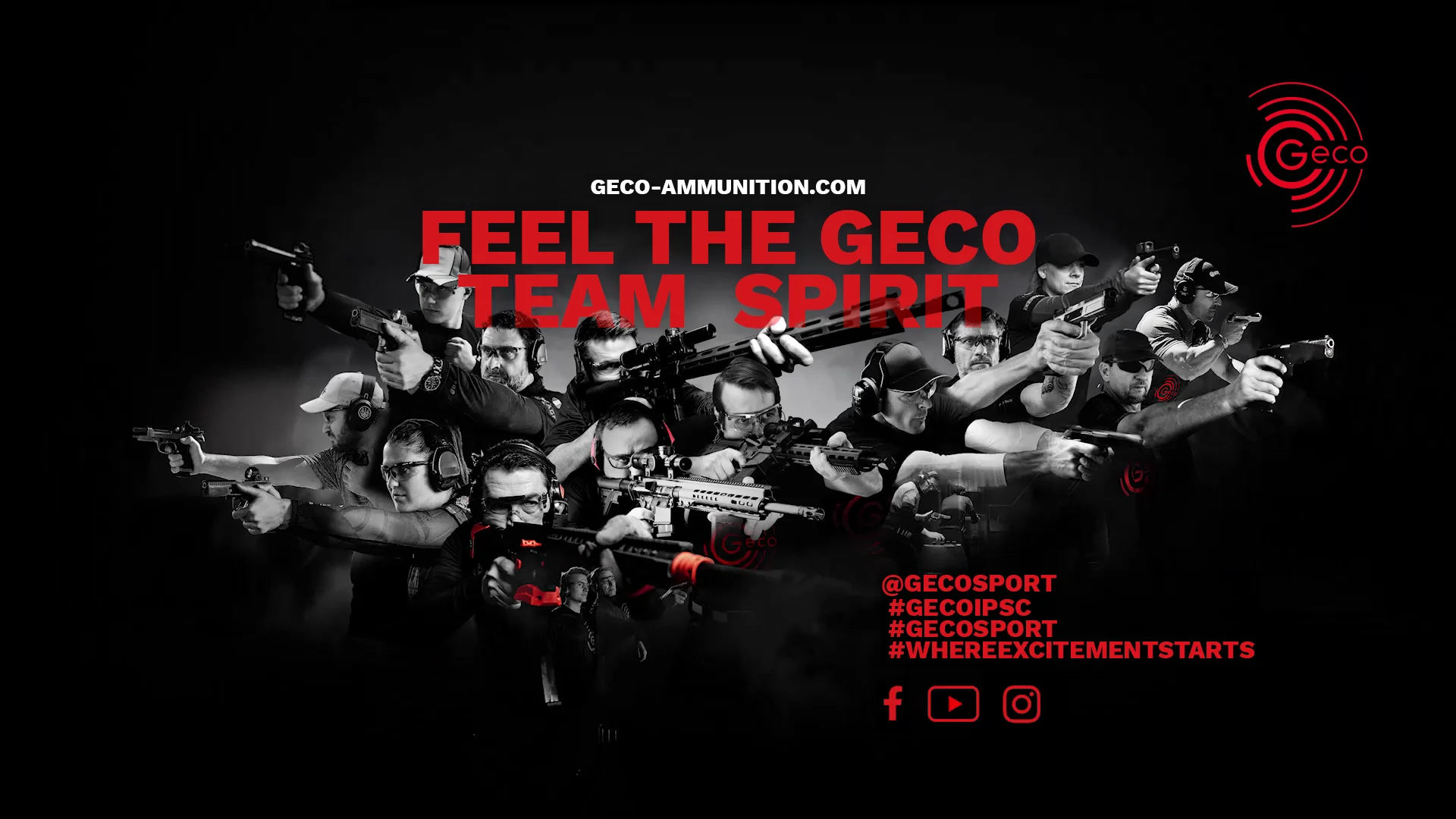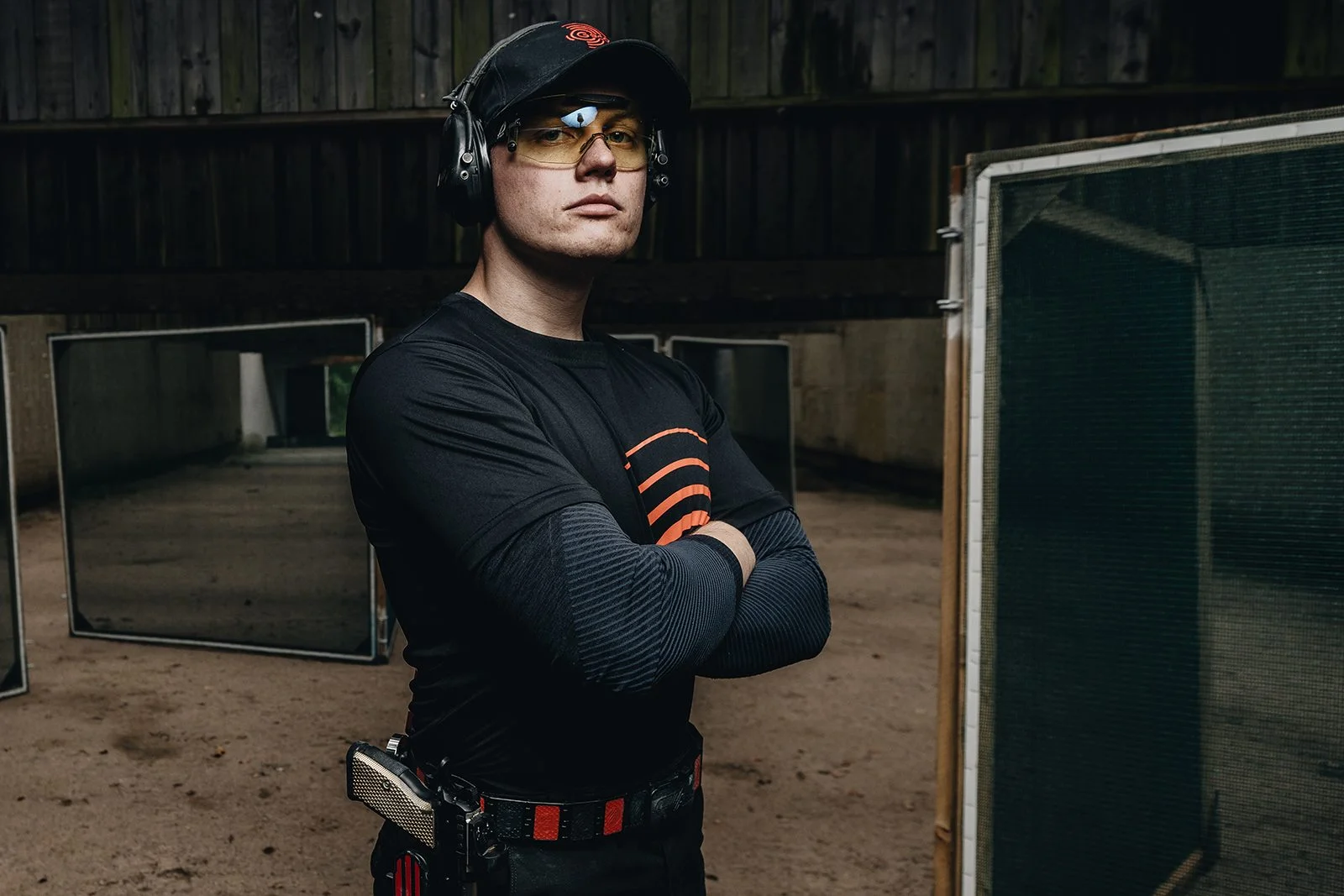
SHOOTING PORTRAIT:
Dylan Keppel
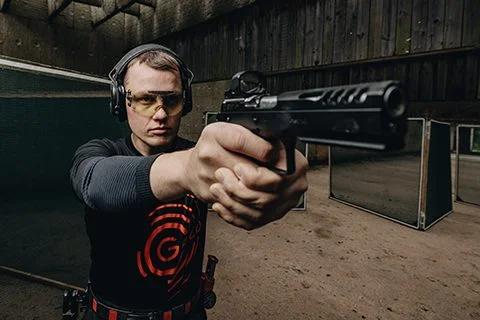
GECO IPSC Team Shooter
Dylan Keppel, Netherlands
Dylan Keppel was born in 1997 in Zoetermeer, Netherlands. His father, John Keppel, a master in dynamic shooting, played a significant role in Dylan's life and sports career. Inspired by him, Dylan began to develop an interest in shooting sports at a young age. At the age of 14, he no longer wanted to be a mere spectator and started training himself. Shortly thereafter, he participated in his first competitions with the clear goal of winning titles and preparing for a national career. At 19, Dylan acquired his own shooting license. What started as a family leisure activity turned into a personal mission. Every shot brought him closer to his goal of following in his father's footsteps and winning national and international titles, always accompanied by his father's pride.
"The calculator" – IPSC in his blood
His IPSC journey began with his first open-gun, a weapon specially configured for open disciplines, built by his friend and gunsmith Maurice Drummen. With passion, he trained with the custom-made weapon. In his competitions around the world, he connected with other shooting sport enthusiasts, and each competition brought him valuable experiences and successes.
His path is characterized by an endless marathon of titles, as he adjusts his goals after each achievement and looks for the next possible success. One of these sought-after milestones is a title at the European Championships, which narrowly eluded him in 2023. There was "only" a podium finish at the EHC 2023. Encouraged by his training, he resumed and continues to make every effort to improve himself and his equipment.
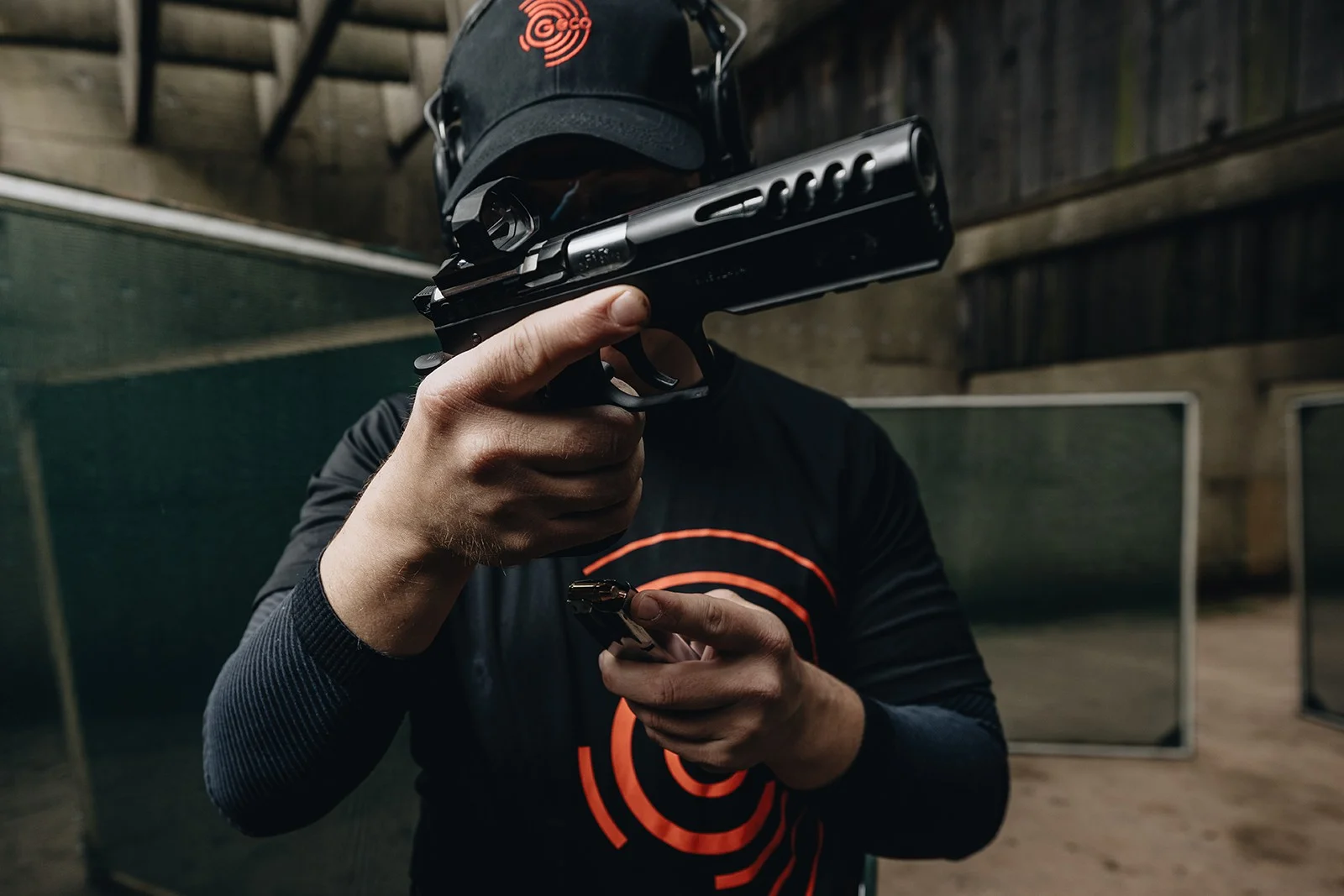
Reliable gear.
IPSC is a highly equipment-intensive discipline of shooting sports. The equipment and the shooter must work together to achieve the best points and times on the stages. Dylan Keppel's weapon of choice is the Tanfoglio Stock 2 Master. With this, he regularly follows a rigorous training program to prepare for upcoming competitions. Every shooting discipline is based on certain fundamental mechanics: weapon handling, grip, reloading techniques, and tested standards for high adaptability to new and individual stages. Dry training is indispensable here. The demand for high reliability applies to all equipment. In addition to the functional reliability of the weapon, the ammunition must also meet high standards to ensure safe cycling and high accuracy in competition. After many tests, the choice of ammunition combined with the weapon system fell on the GECO 9 mm Luger in 124 Grain. This factory ammunition combines functional reliability, repeatability, and precision. It supports all preparations for future national and international titles and successes.
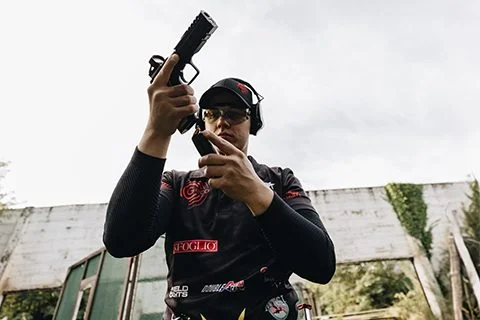
“My personal formula: 1 SHOT = 1 ALPHA, WITH GECO
Keep going, and you will all succeed. If you have the necessary funds, take a course from someone you admire to improve yourself and, of course, shoot GECO."
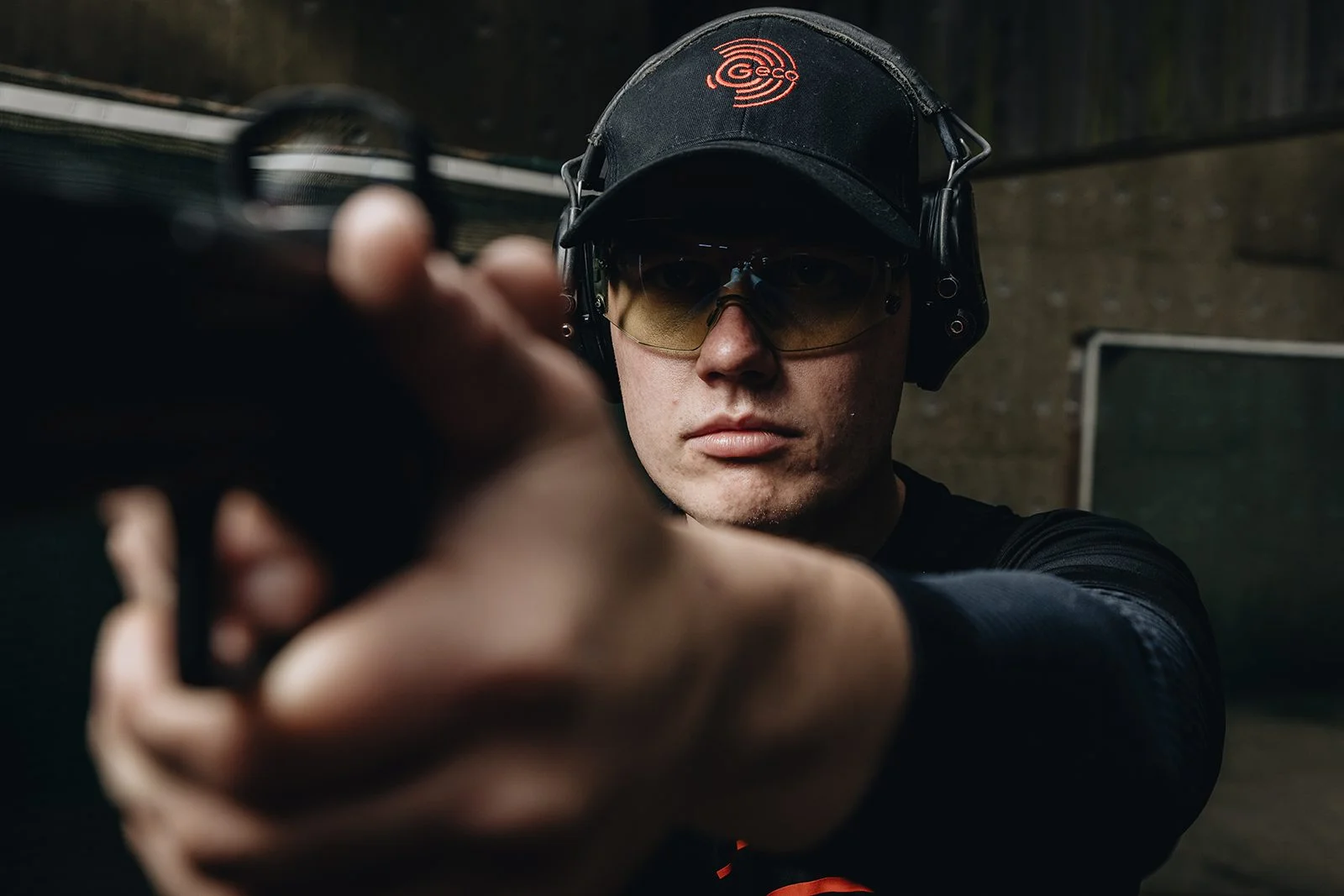
QUICK-FIRE INTERVIEW WITH DYLAN KEPPEL - Q&A SESSION:
HOW DO YOU PREPARE DURING THE OFF-SEASON?
a. Do you do dry fire training?
My off-season is always 1 month in December during which time I do the maintenance on my equipment and do not touch the gun. Apart from that, I'm always training. Dry fire is something I will do at least 3 times a week besides the live fire 3 days a week.
b. If so, what do you look for in dry fire training and what areas do you work on? How much time per week do you spend on dry-fire training (gun handling, target acquisition, changing body positions, different shooting positions, etc.)?
Dry fire consists of firearm basics. This consists of reloading, drawing, specific movement techniques that I like to work on! There are a lot of things you can focus on before the actual live fire.
c. Is there any gym work? If so, what kind? (Endurance or cardio, strength endurance, maximum strength, speed, agility, coordination exercises, core stabilization, etc.)
Yes, I do speed/running training once a week. I also do general explosiveness in my home gym 3 times a week. Box jumps, split squads and of course some ab work.
d. What about mental training? If so, what methods do you find most helpful? (visualisation techniques, breathing exercises etc)
Mental is something I'm super strong at. I like to feel pressure and shoot under high stakes. My interest in reading books about Olympic gold medalists and seeing if their way of thinking is something I can use in my career. The biggest thing I have taken away is the visualization before a stage. I can still visualise stages from months ago because I do this so many times before a stage.
WHAT INVENTORY CHANGES ARE PLANNED AND WHEN?
The logic maintenance is springs and optic battery once every 6 months.
a. Modifications to the gun or sights?
I shoot an out of the box Tanfoglio Stock 2 Extreme, the only modification is the optic I shoot a Shield RMSX 4moa optic. Super accurate with the GECO ammunition.
b. Belt or other equipment you would like to change/improve?
As a professional shooter, I have made all the changes that I feel are best for me. I would advise any shooter not to change too much during the season. Give it at least a month of practice before using it in a match.
c. What is your favorite piece of equipment and why?
My ammunition. This is the thing about having good quality ammunition that works all the time. A lot of people put the blame on their gun when it doesn't work, but most of the time it's the mechanic himself who has unfortunately made some mistakes when reloading.
d. What is your favorite gun and why?
Tanfoglio Stock 2 Extreme
e. Do you have any special equipment or custom builds and if so, which ones and why?
All the equipment I use is available to everyone!
f. Besides guns, straps or the obvious, what equipment do you think every IPSC shooter should have?
A good range bag with spare parts! There will always be something that breaks when you least expect it.
HOW DO YOU OBTAIN AND TEST YOUR AMMUNITION?
a. How much ammunition do you use per year for each firearm?
I only shoot handguns. Besides work I already practice in different ways 9 times a week. I would like to shoot all firearms, but I do not have the time! I wish I could shoot full time (laughing). Currently I shoot 300 rounds a week 3 sessions. So about 50,000 a year.
b. Do you have training ammunition and special competition ammunition or do you use one type for everything?
NO! all ammunition is the same. I only have a training gun and a match gun. That way I keep the match gun brand new and super accurate.
SEASON PLANNING
a. How many matches do you shoot in a normal year?
I shoot about 20+ matches a year. Last year I shot 12 lvl3 international matches. I focus on the big matches rather than the volume so that I can compete with other shooters at the highest level.
b. How many international trips have you planned for the coming year?
I currently have 6 flights booked for 2024 and will shoot 8 lvl3 matches and if financially possible the Australasian lvl4, African and Latin American!
c. What is your main competition for the coming year?
All lvl4 matches!
d. How will you prepare for this main competition? Will there be any rest periods, test matches or other special phases?
A steady pace of work with shooting 5x a week the month before!
SUCCESSES AND DEFEATS
a. What do you consider to be your strengths and weaknesses?
Mental game and stage planning are my strengths. I'm always the so-called calculator! I calculate hitfactors to take risks or not if they are worth it. My weaknesses are something I will work on and they will be variable and I will work on them in between matches.
b. What is your motivation to take part in the ISPC sport or what is the special attraction?
I just love to compete and develop as a shooter. Also, the people on the range are always super nice.
c. What has been your greatest success?
My biggest success was the EHC podium in 2023. I never come for anything but 1st place but after the match I did feel proud on what I have accomplished. Sometimes you forget that this was a dream that came true when I started shooting!
PARTICIPATION IN A COMPETITION
a. What is your main focus of attention during the walk-through?
I have the same routine, Count targets, look for plan A,B,C,D etc. and calculate Hit factor. Then decide my plan, what movement I want to use and what targets need some kind of sight picture / trigger press. I always use the full time. Even if I already have a stage plan.
b. How do you cope with being the first shooter at the first stage?
I love it! This is an opportunity to start the match where I have been practicing for. I see the first stage as a bonus stage. Lots of shooters start slow and I try to push here to take away some extra points
c. How long before the first competitive shot do you arrive at the shooting range?
About 1 hour in advance and it can be earlier if I have never been on that range.
d. What diet do you adhere to or how do you stay fit during a competition?
I weigh myself on a daily basis and are always focusing on a high protein diet. My weight during the season will consistently be around 72kg’s
e. Do you have a formula/basic attitude for approaching a competition? (Focus on speed or hits; do you occasionally push your own limits/step out of your comfort zone or take deliberate risks; do you prefer to be in a squad with ‘better shooters’ or the other way round etc.?)
I do what the stages ask for depending on the Hit factor of the stage. I have no preference in squad with high of low lvl shooters. I respect every shooter and will look at everybody! The only thing I highly prefer is to shooter with my girlfriend and top lady shooter Cheyenne Wauben. She is hard to impress so I always try to (laughing).
f. Which stage elements/designs do you like best and which ones not so much? (Long courses, shorties, moving targets, memory stages, field courses with a lot of running, stages that demand good accuracy, spray and pray stages etc.)
I like it when a match asks all the elements of IPSC during the match. So all stages should ask for something different to test everybody their full IPSC needed skills.

